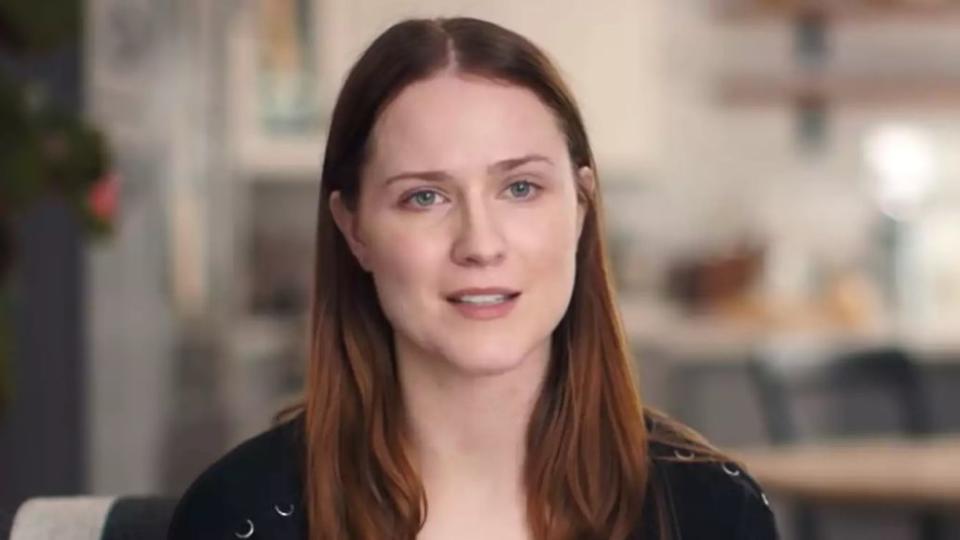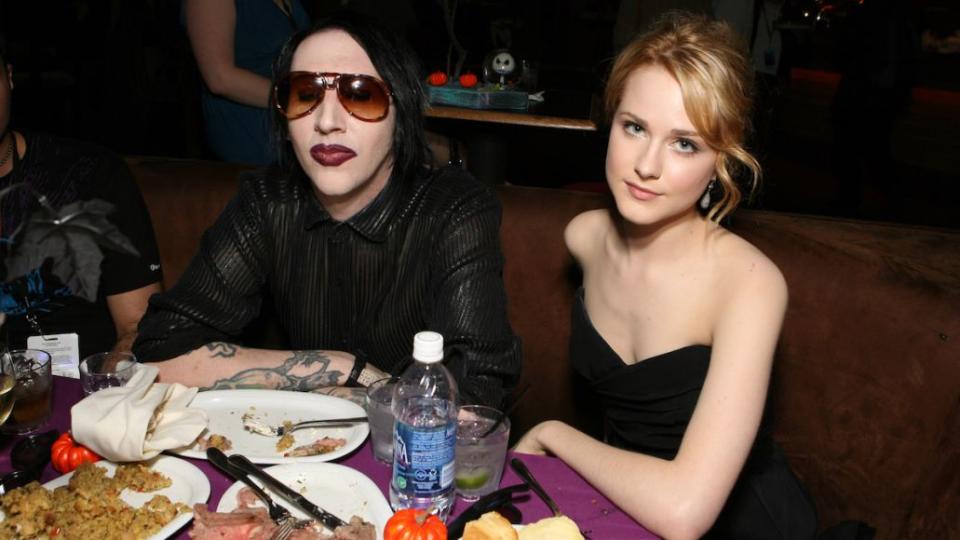Phoenix Rising Review: Evan Rachel Wood Details Her Searing Story of Surviving Abuse
- Oops!Something went wrong.Please try again later.
- Oops!Something went wrong.Please try again later.
The post Phoenix Rising Review: Evan Rachel Wood Details Her Searing Story of Surviving Abuse appeared first on Consequence.
Warning: This review contains mentions of emotional and sexual abuse.
In 2005, a teenage actress named Evan Rachel Wood met deliberately provocative shock rocker Marilyn Manson, AKA Brian Warner, at a Chateau Marmont party; for several years, they publicly dated. While their relationship was an object of fascination for the tabloids and gossip sites at the time, the full extent of what happened between them wasn’t necessarily known — until, starting in 2016, Wood began speaking publicly about being a domestic violence survivor, eventually naming Warner as her abuser in February 2021.
The full extent of Warner’s abuse of Wood has trickled out over the years, but Phoenix Rising, an intimate portrait of Wood’s experiences with Warner and how she’s struggled to overcome the trauma left behind, lays out every aspect of the circumstances which led to her getting ensnared in his world, and just what it took to leave it behind. While the two-part documentary series is directed by Amy Berg (Deliver Us From Evil, An Open Secret), Berg wisely lets Wood be the ultimate driver of her own story, making for an unflinching tale of abuse and what it takes to survive it.
The two-part documentary (with a total runtime of approximately 155 minutes) begins by recounting how the end of Wood’s parents’ troubled marriage eventually led to her and her mother living together in Los Angeles while her career as a young actor blossomed.
While Wood and her immediate family (all of whom are interviewed for the documentary) skirt over the more painful details about what happened prior to her parents’ divorce, what does get established is that as a young woman, Wood was relatively isolated from everyone except her mother, while also internalizing a lot of complicated messaging about her own sexuality, playing characters who were far more experienced and knowledgable than she was in real life, and feeling lost and confused as a result.

Phoenix Rising (HBO)
This portion of the documentary isn’t just another fascinating yet hard reminder of how Hollywood culture can treat young female ingenues (as just one additional example, Natalie Portman’s comments about being sexualized as a teenager are an essential read). It’s laying the foundation for how, exactly, Wood ended up getting entangled with Warner — she was adrift, and he offered something to connect with.
As Wood reflects on the nature of Warner’s “courtship,” Phoenix Rising is careful to break down all of his behavior for exactly what it was: different stages of the grooming process, which aims to isolate a victim, “love bomb” her with affection, and then create a dependency which is hard to escape.
In search of a thematic thread, Berg chooses to spotlight Alice in Wonderland, thematically very apt given how author Lewis Carroll’s interest in young girls has been the subject of much discussion over the years. But also, it’s a story that Wood says she identified with, and the first project over which Wood and Warner connected was Phantasmagoria, a dark Lewis Carroll riff Warner would eventually direct (only to remain unseen.
In support of that theme, like many documentaries these days, Phoenix Rising features some animated sequences and artwork riffing on classic children’s stories, sometimes leaning a bit hard on these elements. But more distracting is how structurally, Phoenix Rising jumps around a fair amount in the chronology of events, with Wood captured on screen at various points of her journey, from filming herself getting ready to name her abuser publicly to footage of her and other domestic violence survivors campaigning in Sacramento on behalf of The Phoenix Act.
While a rigorously chronological recounting of events wouldn’t necessarily be the best treatment of the material, it’s sometimes hard to sort out why certain time shifts occur, due to a lack of clear transitions; as an empathic recounting of events, the approach works, but a hair more structure might have improved the overall flow.
In the lead-up to the release of this documentary, Warner has sued Wood for defamation of character, with his lead attorney Howard King telling Deadline that “It’s incredibly important to differentiate between the character of ‘Marilyn Manson’ and the man Brian Warner. Wood’s claims may resonate because of the intentionally ‘shocking’ character of ‘Marilyn Manson’ but they simply do not reflect the truth.”
This feels like a point that Wood and her fellow survivors were anticipating in the making of this documentary, because throughout they’re very explicitly clear about the man they’re talking about; when referring to his public persona, they sometimes refer to him as “Manson,” but otherwise they make it clear that it was Brian Warner — the man, not the character — who was responsible for the torture and abuse they suffered.

Marilyn Manson and Evan Rachel Wood, photo by Eric Charbonneau/WireImage for Disney Pictures, via Getty Images
The details of that abuse, by the way, are not spared here, though it doesn’t get gratuitous to the point of exploitation, and stays relatively focused on Wood’s own experiences; anyone who’s read last November’s Rolling Stone investigation knows that this portion of the documentary could have been a lot, lot longer.
But what proves to be more powerful than a recounting of the horrific acts allegedly committed by Warner not in the name of his stage persona, but for his own personal satisfaction, are the scenes in which Wood gathers with survivors. Not just survivors of domestic abuse, but specifically survivors of Warner’s abuse, with their choosing to speak out being held up as the brave act it is. Together, though, they’re united in strength. It’s inspiring to behold.
Towards the end of the documentary, there’s a heavy-handed moment where Wood literally defaces a “Manson” portrait of herself with a Sharpie. But while it might feel like a bit much, it’s all part of how Phoenix Rising doesn’t just seek to expose a monster, but make clear how the facade doesn’t excuse his behavior. Stripped of his fans, stripped of the carefully cultivated persona, Warner emerges as almost a pathetic figure, powerless in the wake of these accusations.
How powerless he ultimately is remains to be seen, which is why Phoenix Rising is in some ways an incomplete narrative — through lawyers, Warner denies all of Wood’s claims, and the lawsuit is pending. But with stories of real trauma, it’s hard to ever imagine a true ending, and this documentary still manages to end on a hopeful note, if only because the hardest part has happened: Wood has managed to tell her story.
Where to Watch: Phoenix Rising premieres March 15th and 16th on HBO.
Trailer:
Phoenix Rising Review: Evan Rachel Wood Details Her Searing Story of Surviving Abuse
Liz Shannon Miller
Popular Posts
Sam Elliott Complains About "Homosexuality" in "Piece of Shit" Movie The Power of the Dog
7-Year-Old Drummer Caleb Hayes Crushes Slipknot's "Sulfur" on Ellen: Watch
Robert Fripp and Toyah Are Right on Time with The Black Keys' "Lonely Boy": Watch
R.I.P. Kirk Baily, Actor Who Played "Ug" Lee on 'Salute Your Shorts' Dead at 59

